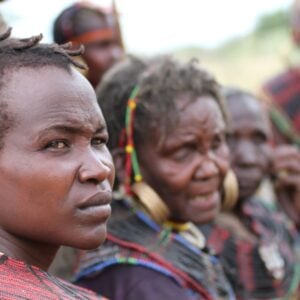Masvingo, Zimbabwe – The Government of France, the Food and Agriculture Organization of the United Nations (FAO), World Vision, and the Government of Zimbabwe have celebrated progress under the Nourish and Thrive: Inclusive and Sustainable Nutrition and Livelihoods Initiative, a €1 million project supporting vulnerable families in drought-affected Masvingo and Mwenezi Districts. French Ambassador to Zimbabwe, H.E. Paul-Bertrand Barets, visited the project site in Masvingo, touring nutrition gardens, interacting with families, and meeting children benefiting from the initiative. He praised the project for supporting thriving children and resilient families.
Launched in response to the El Niño-induced drought, Nourish and Thrive has reached 38,000 direct participants and 160,000 indirect beneficiaries, with a strong focus on mothers and children under two. The project combines nutrition gardens, care groups, drought-tolerant seed packages, cash transfers, and child malnutrition screening to improve food security and resilience for affected households.
For many families, the initiative has had a tangible impact. Participants reported being able to provide daily meals, buy essentials, and sell surplus produce to generate income. Training in climate-resilient agriculture has enabled farmers to grow vegetables even under dry conditions, contributing to improved diets and household livelihoods.
Representatives from the Government of Zimbabwe emphasized the project’s alignment with national and regional priorities, including Zimbabwe’s National Development Strategies, the African Union’s Agenda 2063, and the Sustainable Development Goals. The initiative reflects the country’s commitment to ending hunger and malnutrition while promoting sustainable community development.
FAO highlighted the integrated approach of combining nutrition gardens, cash transfers, community care groups, and digital tools such as the IDEA platform to restore dignity and improve diets in hard-to-reach communities. World Vision noted the importance of community-led solutions, empowering families, strengthening local nutrition knowledge, and fostering resilience across participating communities.







